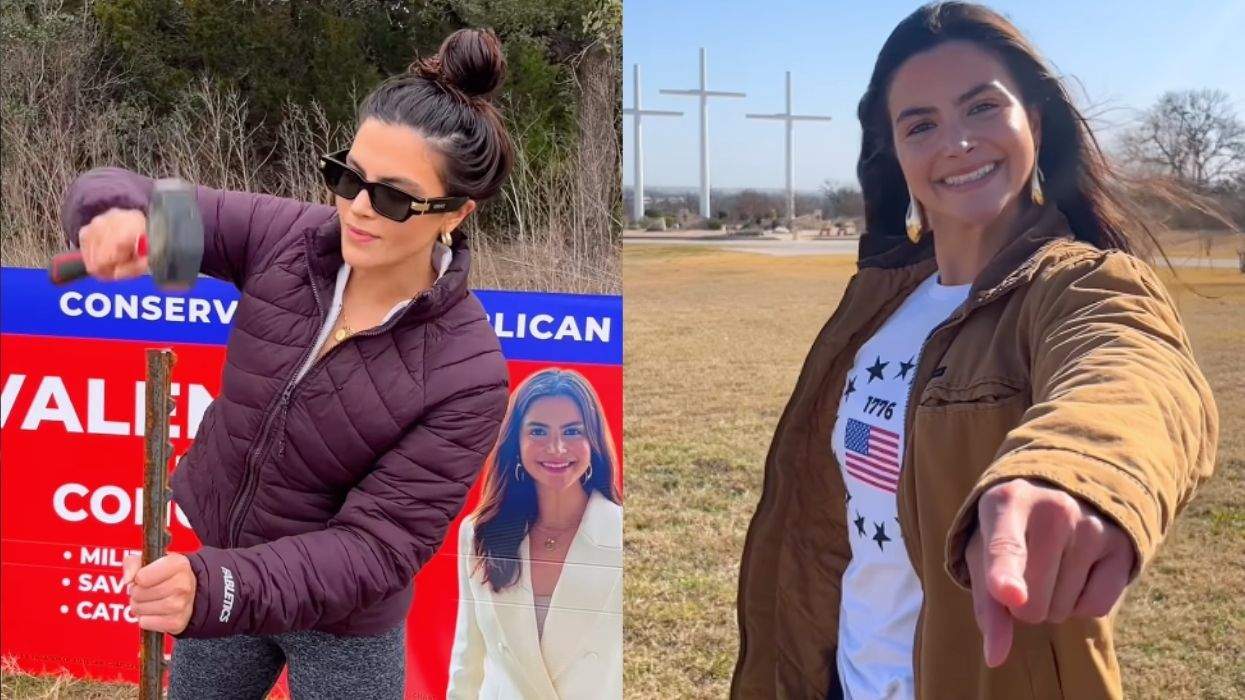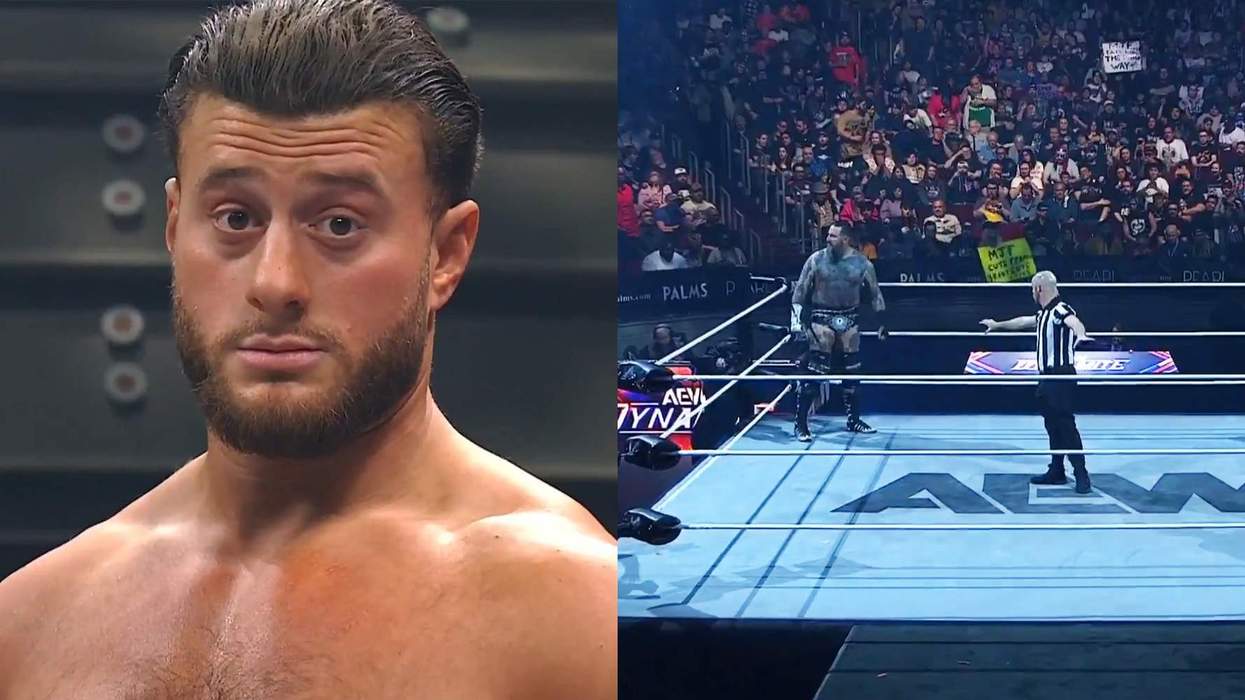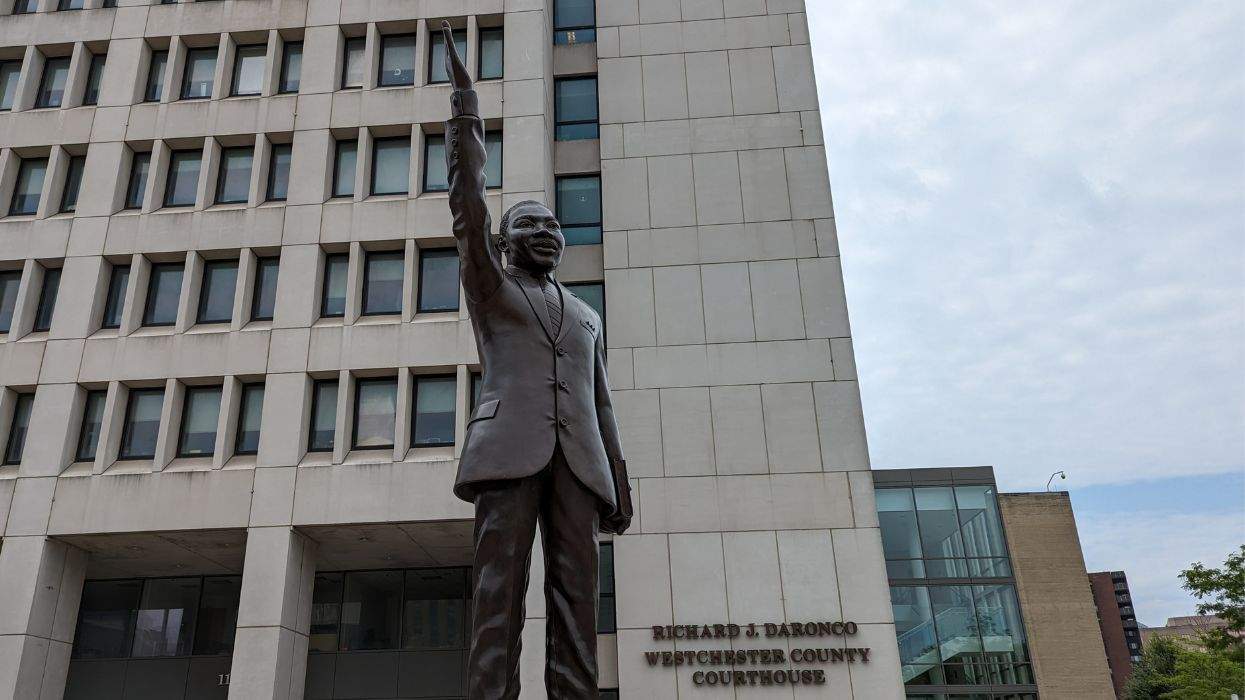Even though I didn't officially come out of the closet until I was 27 years old, with my departure from the U.S. Air Force, I started my life of dabbling in the gay community, albeit usually with a hat pulled way down over my eyes, when I was 21 years old. From the Air Force Academy, my newfound-to-be-gay buddies and I would sneak out to the gay clubs of Denver, just to see what we could learn about being gay. By today's standards, coming out at 21 is sort of a late start, but I'd like to think that I've lived a full life in the gay community and have taken advantage of my right to have fun in the gay "scene."
At the risk of sounding as if I think I'm old, I've come to accept that there is a whole new generation of young, budding, coming-outers who are enjoying stomping grounds that I hardly walk on anymore. Their rules of engagement and view of the world are completely different than my own; a different view of the gay world than what I had when I was their age -- different from the view I have now. I've hung out with and dated guys from this younger generation, and I've come to realize that the biggest difference between me and them is their lack of a need to separate themselves, or distinguish themselves as different, from the majority of heterosexual society. It's something that we, as part of earlier generations, could stand to learn.
More people of this new gay generation are coming out at a younger age and in an environment of heterosexual people who, day by day, care less and less about anyone's sexual orientation other than their own. This has caused what I can best describe as a phenomenon of visible comfort and security within this generation with regard to who they are as gay people. This naturally leads to their ability to integrate themselves into a society, with a mind-set that wouldn't even understand why a heterosexual person would find them or their lifestyle remotely shameful or strange.
Granted, I'm writing you from a Los Angeles viewpoint, where the word "progressive" means something much more advanced than in many other parts of the country, but I remember parts of Los Angeles, even just outside of West Hollywood, that, 10 years ago, were not integrated and not friendly to two men holding hands on a street corner.
To keep up with the times, I've learned a lesson from my replacements, and I'm taking some steps to continue what they have put in motion. I'm doing this because I believe this trend of integration is a positive one with exponential benefits for us as individuals, and for society in general. I'm placing more value on integrating my life into that of the heterosexual world, and being more aware of any past need I've had to only visit gay bars with my friends or search for housing in gay neighborhoods out of a need to feel secure in my own behavior.
Going out to a gay bar will always have its luster, just for the mere possibility of finding a mate for a single guy or girl, but for a gay couple or an all-gay group of friends, to go to a mixed bar in an area filled with tolerant, educated heterosexual people is a recipe for a really good and valuable time. I'm not proposing doing this out of principle to prove a point, but doing this because you've discovered you like the location and feel of a certain establishment that happens to not be predominantly gay.
A few weeks ago I went to San Diego with some gay friends to visit some other friends of mine who happen to be heterosexual. The club we chose to go to that first night of our trip is called Universal. As soon as I arrived at the club I realized I was in a new-generation situation. The crowd was equally mixed between heterosexual and gay people. All of the normal club-type displays of dancing and affection came off as normal whether or not it was between two men, two women, or a woman and a man. The acceptance and appreciation for each other that I saw among everyone there wasn't forced or merely part of being tolerant. It was genuine and created a feeling of peace in me and in the room.
I also find that the gay youths of today (now I definitely sound like I think I'm old) don't necessarily want to live in the predominantly gay areas. Many are choosing to live in neighborhoods where they are the only gay couple or all-gay house on the street. The benefits of this choice are dynamic because we command tolerance from others just by being visible, positive parts of their neighborhoods. With integration, we also prevent ghettoizing ourselves into a microcosm where we lack an understanding of the people of the majority of the world in which we must work, live, and function.
Although I agree that this trend toward integrating our community into the general population is a good thing, I understand that this is something that could have only come with time. Our gay culture and community's history clearly spell out the reasons for our needing, or being forced, to segregate ourselves into concentrated areas with large numbers of us banding together.
We can't discount what our safety-in-numbers strategy has done for us on so many levels. For instance, when the AIDS epidemic first struck our community in the 1980s, while the rest of the country was playing a blame game, we came together to raise money for research, to educate each other on the use of condoms and safer sex, and to create programs to treat the sick and dying. This would have been an even tougher feat had we not been so closely organized.
We are lucky to live in an age where a transition from this isolation to integration is upon us. I believe that the more we integrate, the more we will be accepted and sought out by the majority to be an appreciated part of society as a whole. We have an opportunity to take advantage of the peace that will ultimately exist when we, as gay people, are not seen as a peculiar fringe of the population.
Today we have a U.S. president whose mere presence in office symbolizes a world where integration of minorities into society ultimately works and leads to an overall embracing of that minority into general society. Many minorities have had to meet unfair challenges along the way. Many have had to band together into tightly knit neighborhoods and communities in order to survive through tougher times. Eventually, however, there came a time where they needed to break out of that mentality of isolation in order to gain acceptance on a new level. Our minority community is experiencing a time of transition that is no different than that of other struggling minority populations of the past.
Let's take the blinders off and venture into the heterosexual world more than we may think we need to, especially those of us who live in urban areas where staying all-gay can be an easy thing to do. I know what you're thinking: But our gay places are so much more fabulously done and taken care of. I'm smiling and I agree with you on many accounts, but there are great places that we miss out on in the midst of a seemingly overly heterosexual society.
I'm not proposing that because we integrate into the general population that we lose our unique way or adopt the lifestyle of the heterosexual population. I'm proposing working on an ability to mutually appreciate our respective lifestyles. Hanging out at gay restaurants, clubs, bars, and neighborhoods may bring us immediate satisfaction and security, but we should make an effort to venture out of our comfort zone. Putting aside our own risk of missing the chance to meet so many amazing people and having positive experiences that we wouldn't normally enjoy in isolation, we as a community have so much to offer that outside world, whether we realize it or not.















